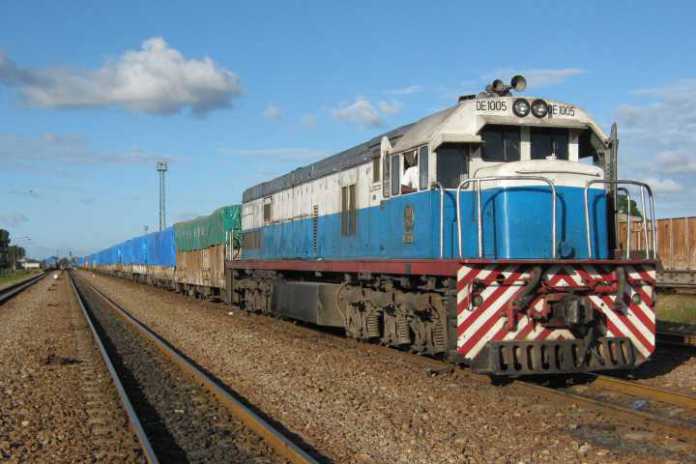Chief Government spokesperson says Cabinet has approved in principle, the introduction of a Bill in Parliament to repeal and replace the Railways Act, Cap. 453 of 1984 in order to reform the rail transport subsector.
In a statement obtained by Money FM News, Dora Siliya said Cabinet agreed that it is important to enhance private sector participation through the open access regime in order to develop and sustain the rail subsector.
Ms. Siliya who is also Information and Broadcasting Services Minister said there is need for a renewed policy and planning to facilitate infrastructure development for rail transport and also encourage private sector investment in the rail subsector.
She stated that the creation of open access rules and regulations will allow private sector players to access the railway system as long as they meet the conditions prescribed and do not exceed design capacity of the particular railway.
“Cabinet agreed that it is important to enhance private sector participation through the open access regime in order to develop and sustain the rail subsector. The creation of open access rules and regulations will allow private sector players to access the railway system as long as they meet the conditions prescribed and do not exceed design capacity of the particular railway. This decision of Cabinet might even allow companies such as those in the mining sector to run railway companies of their own operations.”
“The current structure of the sub-sector and the railway legislation is that the sub-sector entirely depends on the Treasury as the main financier. Therefore, Government is required to finance the railway infrastructure, rolling stock and workshop equipment,” Ms. Siliya said.
She added that with increased investment in the road infrastructure in the country, road transport has been depended upon for transportation of goods and services and this has increased the cost of maintaining the roads.
Meanwhile, Ms. Siliya disclosed that Cabinet also approved the closure of the Zambia National Provident Fund (ZNPF) member accounts, which are being administered by the National Pension Scheme Authority (NAPSA) on a custodial basis.
She said it is necessary to close the Zambia National Provident Fund member accounts and pay out all the beneficiaries because the assets of the Fund were depleted by July, 2015 and that since then, benefits have continued to be paid out from the National Pension Scheme funds.
“Any further delay may have a negative financial impact on the National Pension Scheme. The major concern has been that the ZNPF liabilities grow by an effective interest rate of 27.3 percent per annum, which is higher than the investment return on the National Pension Scheme which, on average, is at 16 percent per annum.” she said.
“The major concern has been that the ZNPF liabilities grow by an effective interest rate of 27.3 percent per annum, which is higher than the investment return on the National Pension Scheme which, on average, is at 16 percent per annum. Currently, the benefit pay out under ZNPF consists of 99 percent interest, and 1 percent as principal,” she stated.
Cabinet approves introduction of Bill to repeal and replace Railways Act







